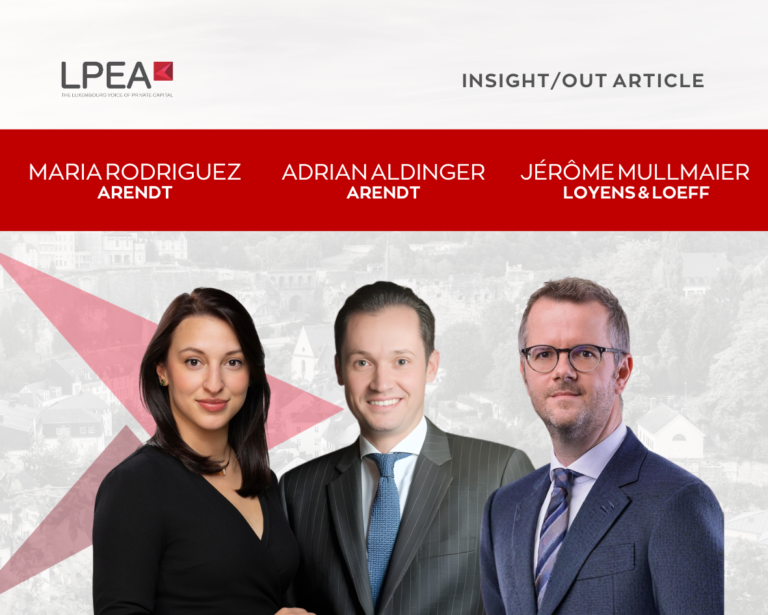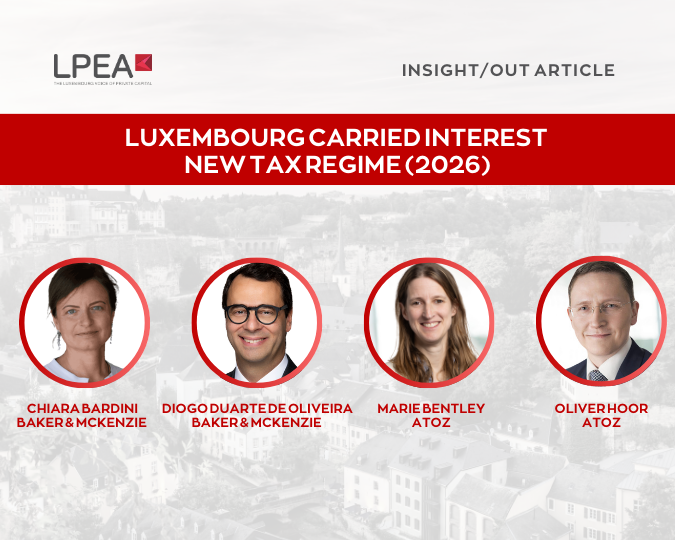Article by By Xavier Balthazar and Bertrand Jaboulay from PwC as featured in Insight Out Magazine #22
The CSSF has recently published the total assets managed in Luxembourg alternative investment funds (“AIFs”) as at 31 December 2020, reaching 1.042 billion euros.
But these are only the “visible part” of the iceberg as the figure does not take into consideration alternative strategies implemented through Luxembourg unregulated vehicles such as the Reserved Alternative Investment Funds (“RAIFs”).
Besides UCITS, Luxembourg has historically been a domicile of choice for real estate funds (German asset managers used to set up Luxembourg regulated funds investing in real estate); Cayman, Jersey, Guernsey used to be the preferred domicile for other alternative strategies, such as private equity or debt.
For 10 years more or less, the alternative business has been growing fast in Luxembourg for three main reasons.
1) The AIFM Directive, implemented in Luxembourg law in 2013, requires that both the AIFM and the AIF are based in the EU to benefit from the marketing passport foreseen in the Directive.
It has become very complicated to sell an AIF to EU investors outside of the passport, using reverse solicitation or private placement.
This means that anyone willing to set up an AIF for cross-border distribution in the EU, is de facto restricted to the EU 27 Member States for domiciliation of the AIF. This discards the formerly successful offshore jurisdictions such as the Cayman, Jersey or Guernsey (as well as the UK).
2) Luxembourg has modernised its legal framework by (i) creating an unregulated AIF regime – the RAIF – in 2016 and (ii) creating the Limited Partnership regime (“SCSp) in 2017—being a tax transparent, without legal personality type of partnership—which perfectly fits the needs of the alternatives market. Other EU jurisdictions, which usually compete with Luxembourg for the domiciliation of cross-border distributed funds, do not yet have a similar framework.
3) The so-called “SPVs” – being companies created and owned by the AIFs and which are used for holding the target assets (they pursue various objectives such as facilitating the sale at the time of disinvestment) – have for a long time been domiciled in Luxembourg. It makes sense for fund sponsors to concentrate both the SPVs and the AIFs which hold these SPVs, in one jurisdiction.
Asset managers choose Luxembourg not only for domiciling their EU AIFs but also their EU Alternative Investment Fund Manager (“AIFM”).
There are two kinds of assets managers managing alternative strategies in Luxembourg AIFs:
● The large traditional asset managers which have successfully expanded in the alternative sector. A number of these players already had a Luxembourg management company of UCITS. It was natural for them to leverage on that substance and apply for an additional AIFM license, to become a “Super ManCo” in Luxembourg.
● The specialist asset managers which focus exclusively on one or more alternative strategies. They have grown tremendously over the last 15 years, following the overall growth of the alternative assets market. These asset managers have historically used third party AIFMs. A portion of them have set up / consider setting up their own AIFM in Luxembourg, as they have reached a critical mass for doing so.
These two categories of asset managers have this in common that, when they have a Luxembourg AIFs’ range, they also choose Luxembourg as a domicile for their AIFM. This is for efficiency and substance reasons, it makes sense to have the AIFM, the AIFs and the SPVs all located in one country.
Luxembourg’s third party AIFMs are able to provide adequate solutions to all types of asset managers who want to distribute their AIFs in the EU. The choice between the two options—their party AIFM or their own AIFM—is a combination of cost and benefit analysis, the willingness or not to deal with the Luxembourg regulator and to externalise or not some of the regulatory compliance risks.
Why Luxembourg?
Luxembourg is the domicile of choice for EU distributed funds pursuing alternative strategies.
This is because it offers a wide range of products (both regulated and unregulated) which can accommodate investors and asset managers’ needs.
It is also because of Luxembourg’s reputation and the expertise in the management, administration (incl. the fund & SPVs’ administration and depositary business) and cross-border distribution of AIFs.
The regulator also plays a role in that success by issuing clear (and increasingly demanding) regulations while remaining pragmatic.
The large choice of products and the reputation and maturity of the domicile, are the main reasons for the success of Luxembourg. No other EU country has to date managed to combine such factors as well as Luxembourg to develop the AIFs’ business.
The international legal and tax framework, as well as asset managers’ and investors’ needs, are in constant evolution. Other jurisdictions are inspired by Luxembourg to adapt their legal framework in order to make it more attractive. It is important that the players in Luxembourg remain alert to their clients’ needs and carry on investing in systems and people. It is also important that Luxembourg carries on adapting its legal framework to remain attractive and make sure that the success story will continue




